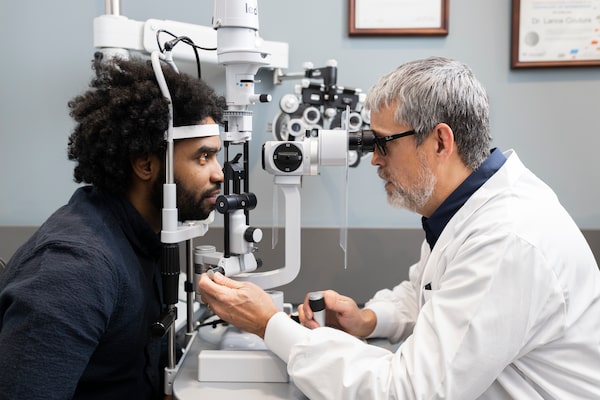
FYI 12-21-97 (1).jpg robmag-bestmanaged-fyidoctors-1128 Handout FYidoctorsHandout
When it comes to running a company, rapid growth is, of course, generally considered to be a good thing. But when growth far surpasses expectations, maintaining company culture is challenging for even the most seasoned leaders. “In the past two years alone, growth has been more than triple what we budgeted for,” says Dr. Alan Ulsifer, founder and CEO of FYidoctors, a network of eye care and medical aesthetics clinics. The company, born in 2005 when a group of Albertan optometrists decided to merge their practices, has grown steadily via the acquisition of independent clinics. Last week, it merged with its biggest competitor, FunctionLab, to form the largest network of medical aesthetics clinics in the country.
“We’re excited about all this growth, but onboarding so many new people can be stressful. Our biggest challenge has been making sure companies that join us have a good experience,” says Ulsifer. “We’re building the ship as we sail it.” Through it all, the company was recently named one of Canada’s Best Managed for the third year in a row. According to Ulsifer, FYidoctors’ success as a cohesive health-care network is down to deliberate support for companies that come under the umbrella—and a willingness to admit mistakes when they inevitably occur.
Ulsifer says that throughout its acquisition history, no formerly independent company has ever asked to undo a deal. But even friendly consolidation isn’t without its hurdles. “Many consolidations go wrong as a result of a breach of trust. You haven’t delivered what you said you would,” says Ulsifer. “It’s important to be honest about what you bring to the table, and about what may not go well, because there’s no such thing as a perfect integration. But when things happen, we don’t point fingers. We show up and support people as best we can.”
For instance, a recent move created friction within the company. FYidoctors manufactures most of the lenses it retails at its own B.C. laboratory. But with rapid growth, demand outgrew the first lab space, necessitating a move to a larger one eight kilometres away. That may not sound far, but for an eyewear manufacturing facility, it’s a major logistical puzzle. And despite a year and a half of planning, it didn’t go altogether smoothly, and the company’s ability to deliver products to its clinics on time suffered at the outset.
At a town hall at the company’s annual general meeting, one of the company’s best-known clinic leaders stood up at an open mic session to complain about the negative impact the shift had on his business. Instead of getting defensive, Ulsifer empathized—and then invited the doctor and his team on a tour of the new manufacturing facility. “I said, I want to show you in person what went wrong, and then show you exactly how we’re going to fix it.” On the company’s next monthly call with clinic leaders, that same doctor raved about the new facility.
For Ulsifer, it’s all part of his company’s conscious focus on camaraderie. Accordingly, FYidoctors refers to its leaders as coaches instead of managers. “Managers tell you what to do. Coaching is about giving people the tools to make great decisions for themselves,” says Ulsifer. “It’s a mindset, and while the wording had some people scratching their heads in the early days of the business, we’ve embraced it as an organization.”
Your time is valuable. Have the Top Business Headlines newsletter conveniently delivered to your inbox in the morning or evening. Sign up today.